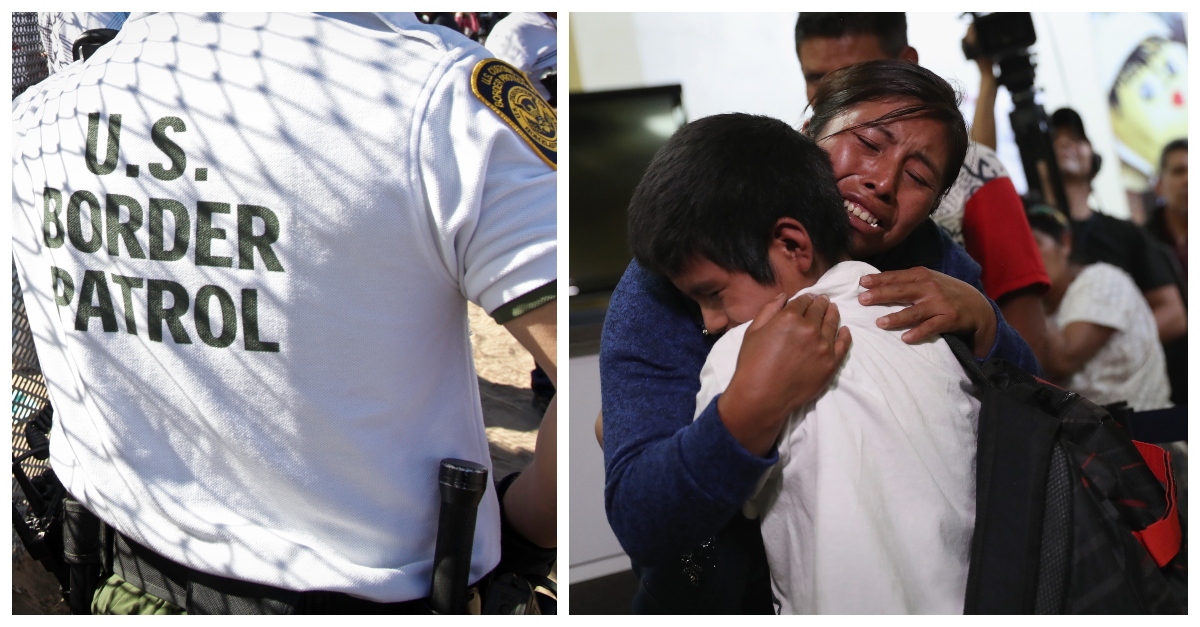
For most parents, the idea of being separated from their children and not knowing their whereabouts is one of the most painful things imaginable. But lawyers are trying to track down several hundred families who were separated from their children at the southern US border.
In 2018, the Trump administration instituted a "zero-tolerance" policy that would separate migrant children from their parents. But the administration confirmed later it had already been separating families under a pilot program that began the previous year. That pilot program was basically an experiment before the "zero-tolerance" policy was announced.
That policy was later ended by executive order. But many of the parents who had been separated under the pilot program had already been deported. A California judge ordered that they be found, but at present, there are still at least 545 children who have been in US custody for about three years. The parents of those migrant children have not been found, according to a filing from the ACLU this week.
Hundreds of migrant children are currently living in the US without their parents. Many of those children are in foster homes and some are with distant relatives. While it was ordered that their parents be located, at least 545 children's families have not been found.
It’s incredibly unsettling that these kids have been away from their parents for so long. The worst part is that finding their parents is proving immensely challenging. In large part, that’s due to the fact that the record-keeping that took place when the families were separated was shoddy, when records were kept at all.
The Trump administration was warned that the situation could become grim when it enacted the “zero-tolerance” policy. It has not only been criticized for being inhumane but for how little preparation there was before the policy began. Now, the task of locating these missing parents seems practically impossible.
Luckily, many people are committed to finding these kids’ parents. “It is critical to find out as much as possible about who was responsible for this horrific practice while not losing sight of the fact that hundreds of families have still not been found and remain separated,” said Lee Gelernt, deputy director of the ACLU Immigrants’ Rights Project. “There is so much more work to be done to find these families.”
“People ask when we will find all of these families and, sadly, I can’t give an answer. I just don’t know. But we will not stop looking until we have found every one of the families, no matter how long it takes. The tragic reality is that hundreds of parents were deported to Central America without their children, who remain here with foster families or distant relatives.”
The ACLU and other organizations are now in charge of a court-appointed committee whose job it is to try and unify these families. But of the 545 kids whose parents are missing, it is believed that only about 25 of the parents may have a chance at being able to come back to the US.
Some the families who were contacted elected to keep their children in the US with a family member or sponsor. It seems like a horrible choice to have to make, but those families say they made it out of "fear of what will happen to their child if they return" to their home countries. Many of those families came to the US seeking asylum.
A group called Justice in Motion is on the ground searching. Reports say they are literally going house-to-house in Mexico and Central America, trying to find parents who were deported. The task is absolutely tremendous, and sometimes seems hopeless.
"While we have already located many deported parents, there are hundreds more who we are still trying to reach," said the group in a statement. "It's an arduous and time-consuming process on a good day. During the pandemic, our team of human rights defenders is taking special measures to protect their own security and safety, as well as that of the parents and their communities."
It's unimaginable to think about what these kids have already gone through. The American Academy of Pediatrics has categorized it as government-sanctioned child abuse. And while it's not unlikely that many who were separated at a very young age have difficulty remembering their parents at all at this point, the experience has to be deeply traumatic on many levels.




